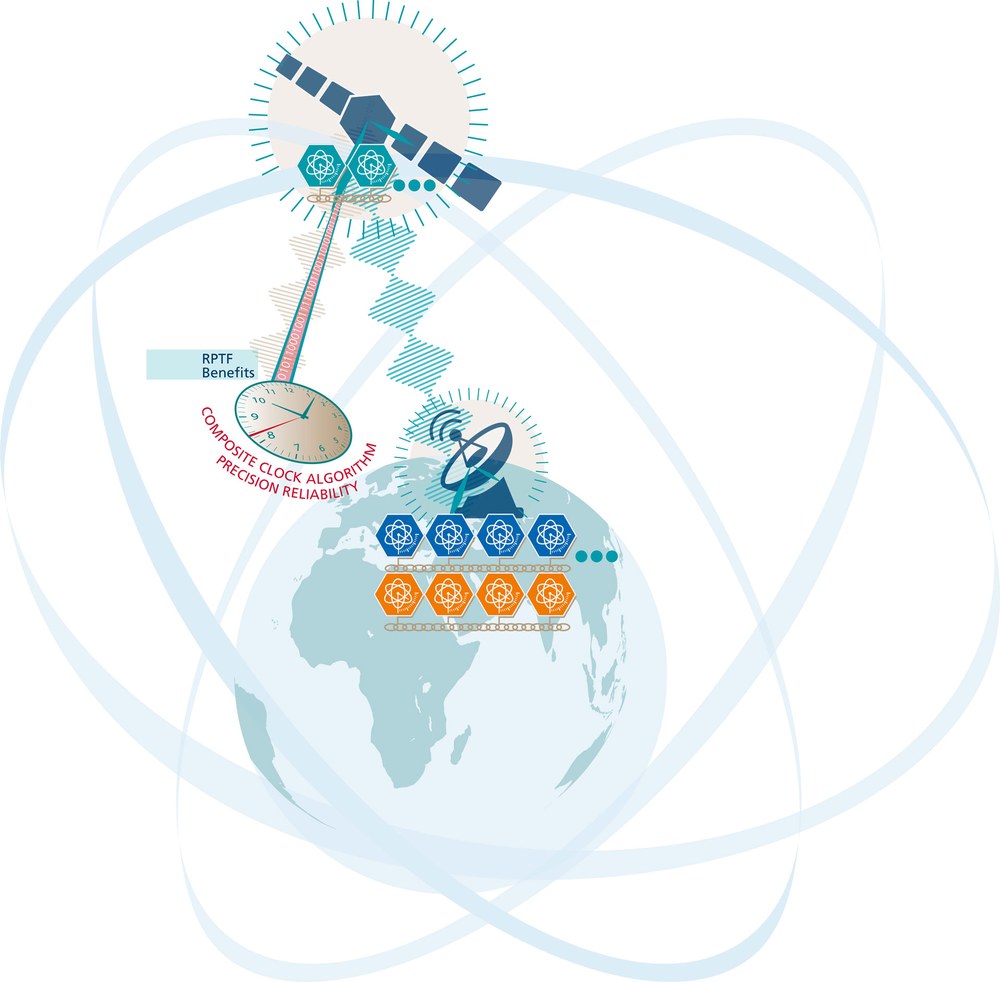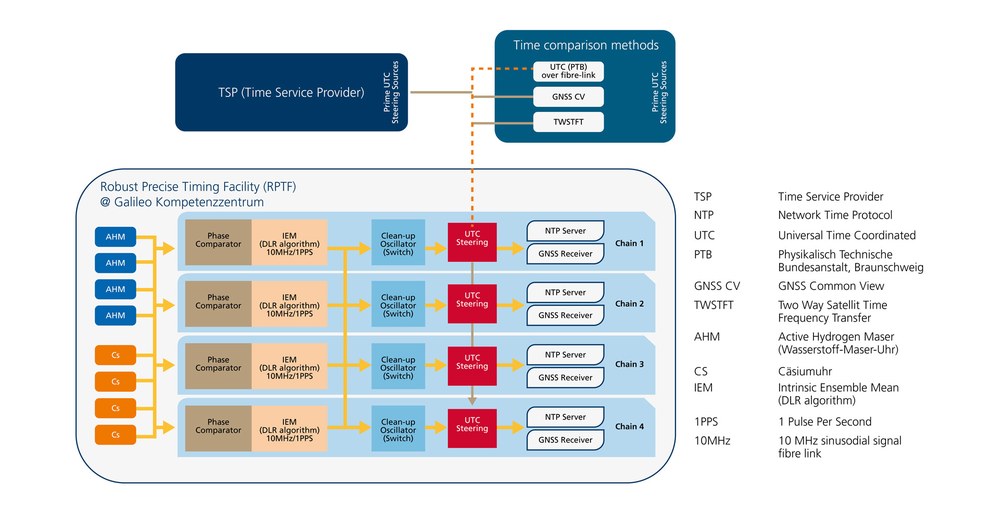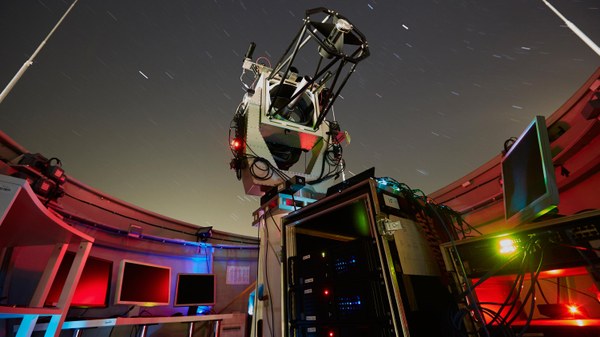Robust Precise Timing Facility
The Robust Precise Timing Facility (RPTF) project envisages the construction of a robust timing facility for Galileo in the sense of worldwide ground- and space-based time generation and time distribution.
Time generation and time distribution
To this end, the current and future clocks of the ground and satellite segments are to be combined into a common system time via the so-called "Composite Clock Algorithm". In addition to the time generation, the time distribution in the system is also a component that must be evaluated from various points of view.
For this purpose, a similar number of clocks as in the Galileo PTFs in Fucino (near Rome) and Oberpfaffenhofen (near Munich) are used in an independent laboratory. At the moment, 4 active hydrogen masers and 4 caesium frequency standards are used to realise the RPTF. The algorithms used are so flexible that any number of clocks can be added with additional measuring instruments. The RPTF is designed and currently constructed in such a way that a measuring instrument failure can be compensated for during operational use. An important aspect of the design is the use of different manufacturers for measuring instruments with the same functionality (keyword: dual source). This principle is implemented for all essential components, e.g. clocks, phase measurements, but also on the software side.

Another point that plays a role in the planning of the RPTF is the direct integration of a national metrological institution. Here in Germany this is the PTB (Physikalisch Technische Bundesanstalt, Braunschweig). By setting up an optical fibre link between the RPTF and the PTB's time laboratory, the German time and the UTC world time can be compared directly with the system time generated in the RPTF. Thus, deviations of the RPTF system time from the world time can be identified immediately and taken into account when providing the RPTF system time.
By using the same atomic clocks, it is possible to compare different measuring devices and algorithms with the operational system and evaluate their effects. Even a replacement of equipment, e.g. within a necessary calibration cycle, is made possible with this approach and the multiple redundant setup without the risk of a complete failure of the RPTF system time.
In addition, the RPTF can also serve for Galileo maintenance and trouble-shooting activities of DLR GfR, Spaceopal and ESA as a test and inspection facility for errors and their analysis.




